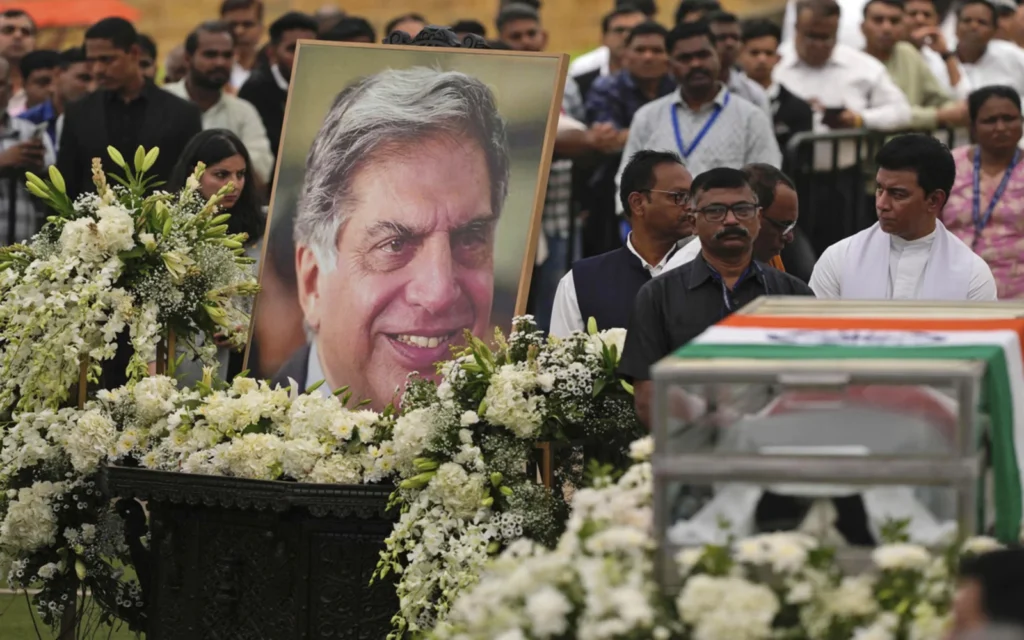Did you know that a single family’s business decisions have shaped the economic landscape of an entire nation for over 150 years? Welcome to the world of the Tatas, where business acumen meets social responsibility in a dance that’s been captivating India—and increasingly, the globe—since 1868.

The Foundations of Tata Empire
Jamsetji Tata’s Vision
Picture this: it’s 1868, and a young entrepreneur named Jamsetji Tata is about to kick off what will become a business odyssey for the ages. Starting with a humble trading company, Jamsetji laid the groundwork for an empire that would eventually have its fingers in every pie from textiles to steel. Talk about a man with a plan, right?
Evolution Through Generations
Now, you might think that keeping a family business afloat for a few generations is impressive. But the Tatas? They’ve turned it into an art form. Sir Dorab Tata, Sir Ratan Tata, and Naval Tata—each took their turn at the helm, steering the Tata ship into new waters and building an industrial powerhouse that would make their ancestors proud.
Ratan Tata: The Transformative Leader
From Shop Floor to Chairmanship
Ever wonder what it takes to lead a multi-billion dollar conglomerate? For Ratan Tata, it started on the shop floor. That’s right—the man who would eventually call the shots for one of India’s biggest business empires began by getting his hands dirty at Telco (now Tata Motors) and Tata Steel. Talk about working your way up, huh?
Global Expansion Strategy
Under Ratan Tata’s watch, the Tata Group didn’t just grow—it exploded onto the global scene. We’re talking Air India, Tetley, and even Jaguar Land Rover joining the Tata family. It’s like Ratan Tata looked at the world map and said, “Challenge accepted.” The result? A behemoth operating in over 100 countries, raking in $103 billion, and employing more people than some small countries have citizens.
Innovation and Risk-Taking
Now, let’s chat about the Tata Nano for a second. Imagine telling your team, “Hey, let’s make the world’s cheapest car.” Most would laugh you out of the room. But Ratan Tata? He made it happen. Sure, not every swing was a home run, but you’ve got to admire the chutzpah, right?
Philanthropic Endeavors
The Role of Tata Trusts
Here’s where things get really interesting. The Tata Group isn’t just about making money—it’s about giving it back. The Tata Trusts, holding 66% of Tata Sons’ equity, are like Robin Hood, but with better business sense. They’re the driving force behind the group’s “let’s make the world a better place” attitude.
Impact on Society
Ever heard of the Indian Institute of Science? You can thank the Tatas for that. From education to healthcare, these folks have been playing Santa Claus all year round, spreading goodwill and development across India and beyond.
Challenges and Triumphs
Navigating Global Economic Shifts
Remember the 2008 financial crisis? While everyone else was running around like headless chickens, Ratan Tata was cool as a cucumber, steering the Tata ship through choppy economic waters. It’s like he had a crystal ball or something.
The Mumbai Terror Attack Response
When terrorists attacked the Taj Mahal Palace Hotel in 2008, Ratan Tata didn’t just rebuild—he made a statement. The rapid restoration of the hotel became a middle finger to terror and a beacon of resilience for an entire nation.
The Next Generation of Tatas
Leah, Maya, and Neville Tata
As Noel Tata takes the reins from Ratan, all eyes are on the next generation. Leah, Maya, and Neville Tata are like the Avengers of the business world—each with their own superpowers, ready to take on the challenges of tomorrow. They’re not just sitting in boardrooms; they’re actively shaping the future of trusts and companies within the Tata universe.
Future Vision and Sustainability
Ever heard of Project Aalinganam? It’s the Tata Group’s ambitious plan to hit net-zero emissions by 2045. That’s right—they’re not just talking about sustainability; they’re chasing it like it’s the last bus home.
So, what’s the big deal about the Tata family business? It’s simple: they’ve managed to do what many thought impossible—build a business empire that’s as focused on profit as it is on people and the planet. From Jamsetji’s initial leap of faith to Ratan Tata’s global conquests, and now with a new generation at the helm, the Tata story is far from over.
As we watch Noel Tata and the next generation take charge, one thing’s clear: the Tata legacy isn’t just about building businesses; it’s about shaping societies. They’re not just playing the game; they’re changing the rules, showing that you can, in fact, have your cake and eat it too—all while sharing it with those around you.
In a world where “business as usual” often means “profit at any cost,” the Tatas stand out like a sore thumb—in the best way possible. They’ve proven that ethical leadership and social responsibility aren’t just buzzwords for the annual report; they’re a viable blueprint for sustainable success.
So, the next time you sip on a cup of Tetley tea or admire a sleek Jaguar on the road, remember: you’re not just seeing a product. You’re witnessing a legacy—one that’s been 150 years in the making and shows no signs of slowing down. Now that’s what I call a family business with a twist!
